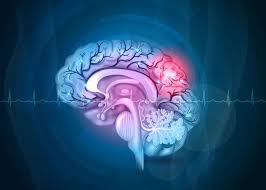- Home
- Editorial
- News
- Practice Guidelines
- Anesthesiology Guidelines
- Cancer Guidelines
- Cardiac Sciences Guidelines
- Critical Care Guidelines
- Dentistry Guidelines
- Dermatology Guidelines
- Diabetes and Endo Guidelines
- Diagnostics Guidelines
- ENT Guidelines
- Featured Practice Guidelines
- Gastroenterology Guidelines
- Geriatrics Guidelines
- Medicine Guidelines
- Nephrology Guidelines
- Neurosciences Guidelines
- Obs and Gynae Guidelines
- Ophthalmology Guidelines
- Orthopaedics Guidelines
- Paediatrics Guidelines
- Psychiatry Guidelines
- Pulmonology Guidelines
- Radiology Guidelines
- Surgery Guidelines
- Urology Guidelines
Blood-thinning drugs reduce risk of dementia by up to 48%

Blood-thinning drugs could protect against dementia and stroke in people with an irregular heartbeat, research suggests.A study found that patients being treated for atrial fibrillation (AF) were less likely to develop dementia if they were taking anticoagulants. Their risk was reduced by up to 48% compared with others with the same condition who were not prescribed the drugs.
Scientists analysed health record data from more than 444,000 Swedish AF patients.While the findings could not prove cause and effect, they “strongly suggested” blood-thinning pills protect against dementia in patients with the condition, the team said.
Atrial fibrillation increases the risk of stroke and blood clots, which some experts think may appear in the brain and help trigger dementia.
Dr Leif Friberg from the Karolinska Institute in Stockholm, Sweden, who co-led the study, said: “As a clinician I know there are AF patients who have a fatalistic view on stroke. Either it happens or it does not. Few patients are fatalistic about dementia, which gradually makes you lose your mind.
“No brain can withstand a constant bombardment of microscopic clots in the long run. Patients probably want to hang on to as many of their little grey cells for as long as they can.
“In order to preserve what you’ve got, you should take care to use anticoagulants if you are diagnosed with AF, as they have been proved to protect against stroke and, which this study indicates, also appear to protect against dementia.”
The researchers identified everyone in Sweden who had been given a diagnosis of AF between 2006 and 2014. Monitoring each person’s progress provided 1.5m years of follow-up during which 26,210 patients were diagnosed with dementia.
Prescribed blood thinners include the drugs warfarin, apixaban, dabigatran, edoxaban and rivaroxaban. Their protective effect was greater the earlier treatment started after a diagnosis of AF, the scientists found.
Friberg said patients should begin taking the drugs as soon as possible and continue using them.
He added: “Doctors should not tell their patients to stop using oral anticoagulants without a really good reason. To patients, I would say don’t stop unless your doctor says so.”
The study, published in the European Heart Journal, found no difference in dementia prevention between the older blood-thinning drug warfarin and newer anticoagulants.
Prof Jeremy Pearson, associate medical director at the British Heart Foundation, said: “Strokes caused by a clot blocking the blood vessels in the brain are a major cause of dementia, and atrial fibrillation is an important risk factor as it increases the chances of these clots forming.
“By treating AF patients with blood-thinning drugs, you reduce the risk of both stroke and dementia.”
Dr Carol Routledge, head of science at Alzheimer’s Research UK, said: “The findings highlight a need to investigate this link further, but the nature of the study prevents us from firmly concluding that anticoagulants reduce the risk of dementia.
“It will be important to see the results of other ongoing studies in this area, as well as teasing apart the exact relationship between anticoagulants and the risk of different types of dementia.”

Disclaimer: This site is primarily intended for healthcare professionals. Any content/information on this website does not replace the advice of medical and/or health professionals and should not be construed as medical/diagnostic advice/endorsement or prescription. Use of this site is subject to our terms of use, privacy policy, advertisement policy. © 2020 Minerva Medical Treatment Pvt Ltd